Understanding the Value of Your Jewelry
Assessing the value of your silver and gold jewelry is a crucial step before selling. The worth of your precious metals can be influenced by several factors, including market trends, weight, purity, and design intricacies. Understanding these elements will ensure you get a fair price for your valuables.
Firstly, knowing the market value of silver and gold is essential. Precious metal prices fluctuate frequently, influenced by economic conditions, geopolitical events, and market demand. Keeping an eye on these trends can help you choose the optimal time to sell.
The weight and purity of your jewelry are also significant determinants of its value. Gold jewelry is typically marked with karats, ranging from 10K to 24K, with higher karat numbers indicating higher gold content. Silver pieces are often marked with “925,” denoting 92.5% purity. It’s advisable to use a precise scale to weigh your items, as even small differences can impact the overall value.
Design and craftsmanship add an additional layer of value. Unique or intricate designs, especially from renowned designers or brands, can significantly elevate the worth of your jewelry. Vintage or antique pieces, characterized by their historical and aesthetic appeal, may also fetch higher prices.
Identifying hallmarks and certifications can verify the authenticity of your jewelry. Hallmarks are small imprints that indicate metal purity, manufacturer, and sometimes, the country of origin. Certifications from reputable organizations can further authenticate your pieces, providing buyers with confidence in their purchase.
Utilizing online resources and professional appraisers is another step towards accurate valuation. Websites offering real-time metal prices, along with online marketplaces, can provide a general idea of current market trends. However, consulting a professional appraiser can offer a more precise and personalized assessment. Appraisers can consider factors beyond metal content, such as historical significance and current market demand for specific styles.
Be cautious of common pitfalls, such as undervaluing your jewelry due to lack of information or relying solely on rough estimates. Comprehensive research and professional advice are key to ensuring you receive a fair price for your precious silver and gold jewelry.
Choosing the Right Silver and Gold Cash Buyer
When selling your precious silver and gold jewelry, selecting a reputable buyer is paramount to ensuring a fair transaction. The first criterion to consider is the buyer’s reputation. Research potential buyers by reading customer reviews and testimonials. Positive feedback from previous clients can provide insights into their reliability and integrity. Additionally, check for any affiliations with professional associations, as these can further validate their credibility.
Licensing is another critical factor. Ensure that the buyer holds a valid license to purchase precious metals, which is often required by local or state authorities. A licensed buyer is typically more trustworthy and adheres to industry standards, offering you peace of mind throughout the transaction.
Comparing offers from different buyers is essential to securing the best deal. Obtain quotes from various sources, including pawn shops, online buyers, and specialized jewelry stores. Each type of buyer has its advantages and drawbacks. Pawn shops offer immediate cash but often at lower prices. Online buyers might provide competitive offers, yet the process can be slower and involves shipping your items. Specialized jewelry stores generally offer higher prices due to their expertise but may require more time to complete the sale.
Understanding the terms of sale is equally important. Carefully review the buyer’s policies on payment methods, returns, and any associated fees. Clear terms can prevent misunderstandings and ensure a smooth transaction. Additionally, practice effective negotiation tactics. Being informed about the current market value of your jewelry can strengthen your bargaining position. Don’t hesitate to negotiate to achieve a better offer.
Lastly, prioritize secure transactions. If selling in person, meet in a safe, public location. For online transactions, use insured shipping and choose buyers who offer secure payment methods. By following these guidelines, you can maximize your profit while safeguarding your interests throughout the selling process.



